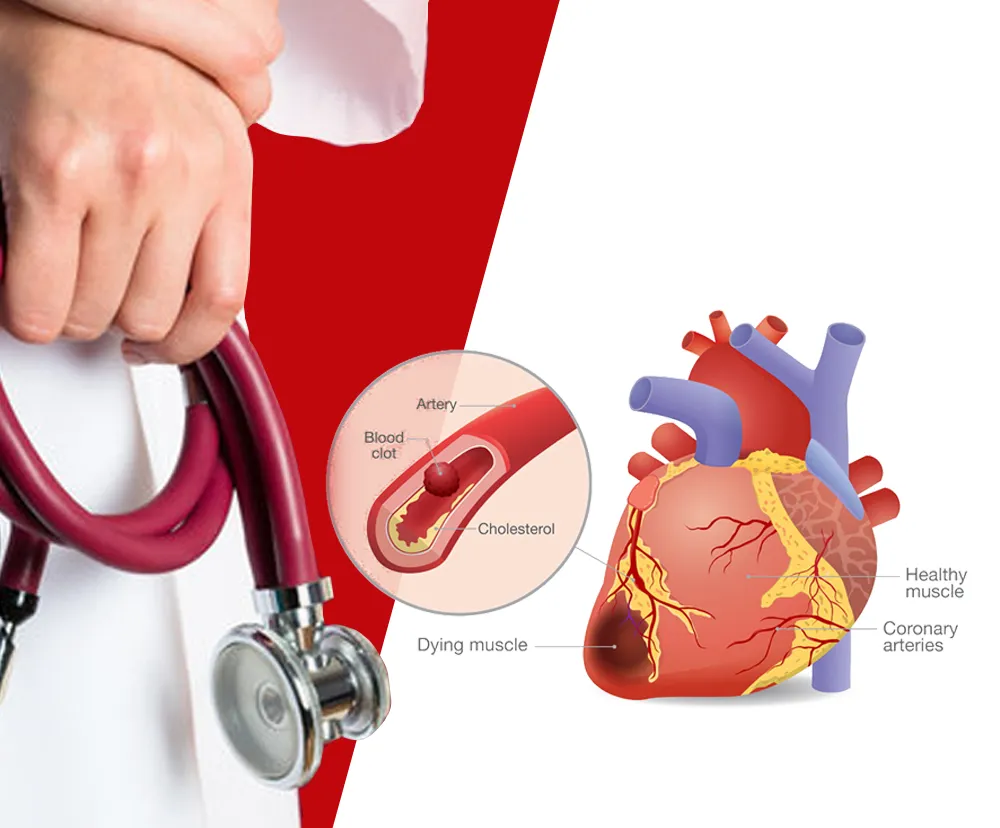What Is The Accuracy Of Heart Attack Prediction Using Machine Learning?
What Is The Accuracy Of Heart Attack Prediction Using Machine Learning?
- Examples of heart attack prediction through machine learning techniques
- What are the different techniques used for heart attack prediction using machine learning?
- How is heart attack prediction using machine learning carried out?
- Have there been studies involving a combination of genetic testing and machine learning?
- Documented example of how genetic testing predicted risk of heart attack in people
Introduction
Imagine receiving a reliable prediction for the next ten years regarding any possible risk of heart attack. Interesting, right? Well, it is not the stuff of science fiction anymore, it is a proven method that is being used in many places across the globe. Read on to learn about documented examples of heart attack prediction using machine learning and how it has saved lives.
Examples of heart attack prediction through machine learning techniques
Here is a small compilation of different studies conducted across the globe to predict risk of heart attack.
- Framingham heart study – Data was collated from this study to develop predictive models for heart attacks. These models were able to predict the risk of heart attacks for a period up to 10-years. This prediction was based on risk factors like age, cholesterol, blood pressure levels, smoking habits, and blood glucose levels.
- Cleveland heart study – Based on the data from this study, researchers were able to predict risk of heart attacks. This research on heart attack prediction using machine learning achieved prediction accuracy that was more than 85%.
- In the year 2019, a study was conducted on the basis of data from health records. This looked at patient history, laboratory reports and medical data. Based on this data, the prediction models clearly identified patterns and risk factors linked to heart attacks.
- Use of wearable devices – Another important area of development that is now widely practiced is the use of wearable devices. Data from wearable devices are used to monitor heart health in real-time – heart rate, activity, etc. This data is then analyzed through machine learning to detect early signs of heart issues. This helps in predicting possible heart attacks.
- Various detailed studies over the years have demonstrated high accuracy. The period of prediction for risk of heart attack has also increased, making it a good technique to detect and predict heart attacks.
What are the different techniques used for heart attack prediction using machine learning?
Various techniques are employed to predict the possibility of a heart attack. Here is a list of techniques that are commonly used for heart attack prediction using machine learning along with types of results.
- Logistic Regression – This gives a binary result whether the person is likely to have a heart attack or not.
- Decision Trees – This shows the possible risk a heart attack.
- Random Forests – This offers an accurate prediction of risk of heart attack.
- Support Vector Machines – This also offers a binary result whether the person is at risk or not.
- Neural Networks – This is a deep learning model that looks at complex patterns for effective prediction.
- Gradient Boosting Machines – This builds models in stages and predicts risks based on machine interpretation.
How is heart attack prediction using machine learning carried out?
The following steps are part of the processes to come up with risk factors of heart attack.
- Data collection.
- Data preprocessing.
- Feature selection.
- Model training.
- Model evaluation.
- Model deployment.
Have there been studies involving a combination of genetic testing and machine learning?
Yes, there have been studies that involve a combination of genetic testing and machine learning. This helps in ensuring higher accuracy in heart attack prediction using machine learning models. Thiis involves integrating genetic information with any of the above ML models. This has demonstrated increased accuracy and offers more personalized results of heart attack prediction. The integration of these two techniques involves the following:
Genetic testing
- Identifying genetic risk factors – This involves analyzing DNA to identify variations that are known to be a factor in heart disease as certain genes are linked to an increased risk of heart attacks.
- Polygenic Risk Scores – This is the sum total of many genetic variants to come up with a score. This score rates the genetic predisposition to risk of heart disease.
Integration with Machine Learning
- Data Fusion – This is to combine the above genetic data with other clinical data. For example, the person’s age, blood pressure and cholesterol levels apart from lifestyle factors.
- Feature Engineering – This is the step where genetic information is selected as features in the machine learning models.
- Model Training – This trains the models to look at the above inputs an identify patterns.
Heart attack prediction using machine learning models has had success in many documented studies. This is the basis on which present prediction services are offered to customers. Here are is brief outline of how some of the studies combined genetic testing and machine learning.
- A study was conducted in 2018 to predict coronary artery disease and heart attacks. This was carried out by integrating polygenic risk scores with other clinical risk factors.
- In the UK, a study looked at the UK Biobank, to develop predictive models for heart attacks. This relied on genetic data as well as clinical data.
There are clear and demonstrable advantages of combining genetic testing and machine learning. This vastly improves the accuracy of heart attack prediction using machine learning. Advantages include the following:
- Accuracy
- Personalization
- Early Detection
Documented example of how genetic testing predicted risk of heart attack in people
Here is how genetic testing helped to predict the risk of heart attack. In 2020, the efficacy of polygenic scores was proven by a study that looked at almost 30,000 people to predict lifetime risk of heart disease. This fared better than typical assessment of risk factors like high blood pressure or cholesterol.
Genetic testing for risk of heart attack is now offered in Tamilnadu. This is a reliable method to help you look for the genetic component of risks. This will give you a lifetime assessment of risk of heart disease due to genetic mutations or inheritance. Based on these results, combined with clinical data, and other simple tests, your cardiologist can easily recommend corrective measures. This could be medications, lifestyle modifications and other interventions to keep you safe from future heart attacks.
Medically Reviewed by
Dr.Rajasekar Cardiologist
Dr. Rajasekar is a cardiologist in Chennai, with extensive experience in the field. He completed his MBBS from Madurai Kamaraj University, followed by an MD in General Medicine and a DM in Cardiology from The Tamil Nadu Dr. M.G.R. Medical University (TNMGRMU).
Related Blogs :

Why You Need To Start Understanding Cardiovascular Disease
Slide HeadingLorem ipsum dolor sit amet, consectetur adipiscing elit. Ut elit tellus, luctus nec ullamcorper mattis, pulvinar dapibus leo.Click Here Previous Next What is the main information...


Life Saving Tips on how to stop Heart Attack
Introduction How to stop a heart attack in 30 seconds? Why time is of utmost importance? How to stop heart attack if you see signs of it...

Doctor of Pharmacy (Pharm.D) from the University of Delhi Experience : Dr. Srinivasan is an experienced pharmacist with a Doctor of Pharmacy degree from the University of Delhi and over 12 years in the field. She has worked extensively in clinical and community pharmacy settings, focusing on patient care, medication management, and drug safety. Dr. Srinivasan also contributes to health and wellness publications and serves as a consultant for pharmaceutical companies and healthcare organizations. Her expertise spans clinical practice, pharmaceutical writing, and regulatory affairs.



